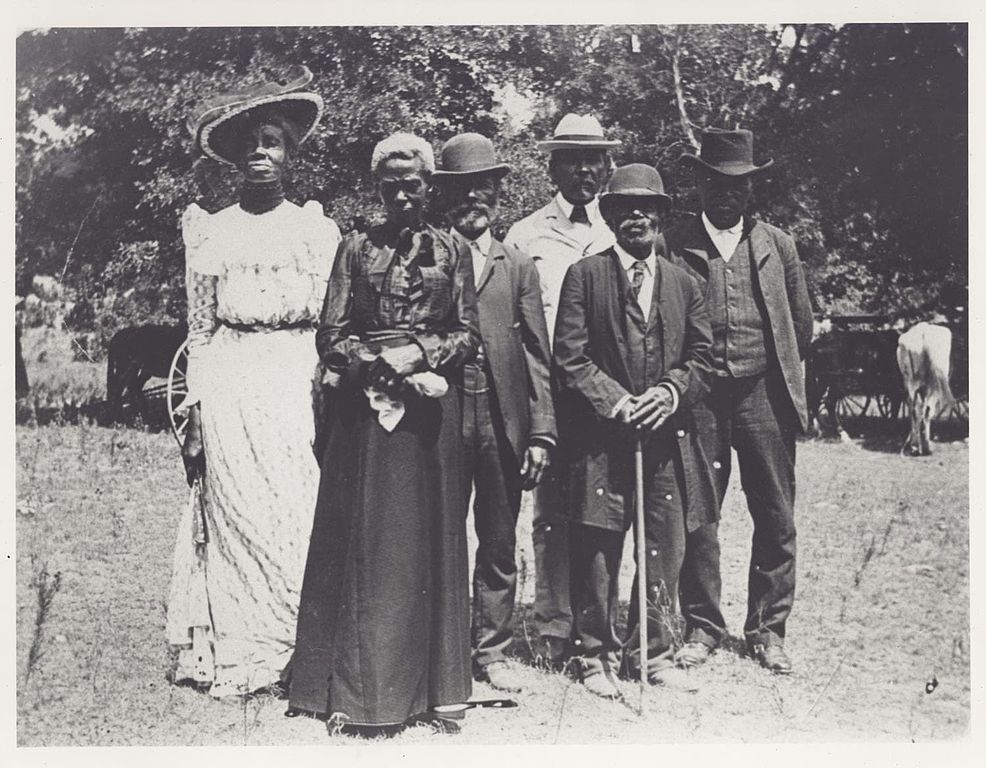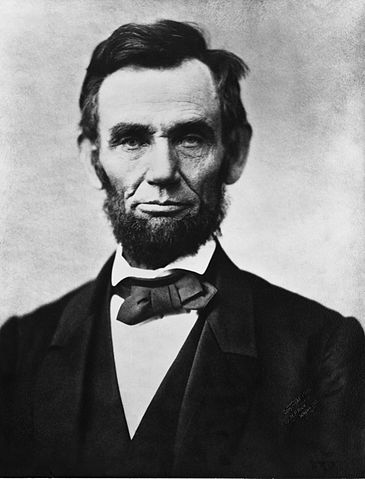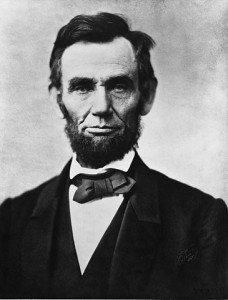
Original source: The Portal to Texas History Austin History Center, Austin Public Library.
Public Domain via Wikimedia Commons
In 1863, President Abraham Lincoln issued the Emancipation Proclamation freeing slaves in Confederate states. Most African Americans would not learn of this act until after the areas they lived in were liberated by Union troops. On 19 June 1865, Union troops entered Galveston, Texas (Texas was a Confederate state during the war) and learned that they were freed. Celebrations began with prayers, feasts, and dance. The following year it would take place throughout Texas on the same date becoming an annual tradition and holiday in 1980. The celebration would spread to other states and sometimes recognized as a state holiday as well. As a result of its importance to African Americans and to the United States as well, the U.S. Congress made it a national holiday in 2021 with President Biden signing the resolution of Congress, It formally began as a holiday on Monday, 20 June 2022. Per federal law, since June 19th fell on a Sunday this year, it was celebrated the following Monday as a national holiday. The formal name of the holiday is Juneteenth National Independence Day.
Lyrics to Battle Cry of Freedom
Yes, we’ll rally round the flag, boys, we’ll rally once again,
Shouting the battle cry of freedom,
We will rally from the hillside, we’ll gather from the plain,
Shouting the battle cry of freedom!
The Union forever! Hurrah, boys, hurrah!
Down with the traitor, up with the star;
While we rally round the flag, boys, rally once again,
Shouting the battle cry of freedom!
We are springing to the call with a million freemen more,
Shouting the battle cry of freedom!
And we’ll fill our vacant ranks of our brothers gone before,
Shouting the battle cry of freedom!
The Union forever! Hurrah, boys, hurrah!
Down with the traitor, up with the star;
While we rally round the flag, boys, rally once again,
Shouting the battle cry of freedom!
We will welcome to our numbers the loyal, true, and brave,
Shouting the battle cry of freedom!
And although he may be poor, he shall never be a slave,
Shouting the battle cry of freedom!
The Union forever! Hurrah, boys, hurrah!
Down with the traitor, up with the star;
While we rally round the flag, boys, rally once again,
Shouting the battle cry of freedom!
So we’re springing to the call from the East and from the West,
Shouting the battle cry of freedom!
And we’ll hurl the rebel crew from the land we love best,
Shouting the battle cry of freedom!
The Union forever! Hurrah, boys, hurrah!
Down with the traitor, up with the star;
While we rally round the flag, boys, rally once again,
Shouting the battle cry of freedom!
Composed and lyrics by George Frederick Root in 1862.
Sources
Nix, E., & Nix, E. (2024, June 11). What is Juneteenth? HISTORY. https://www.history.com/news/what-is-juneteenth
Juneteenth. (2024, June 14). National Archives. https://www.archives.gov/news/topics/juneteenth









